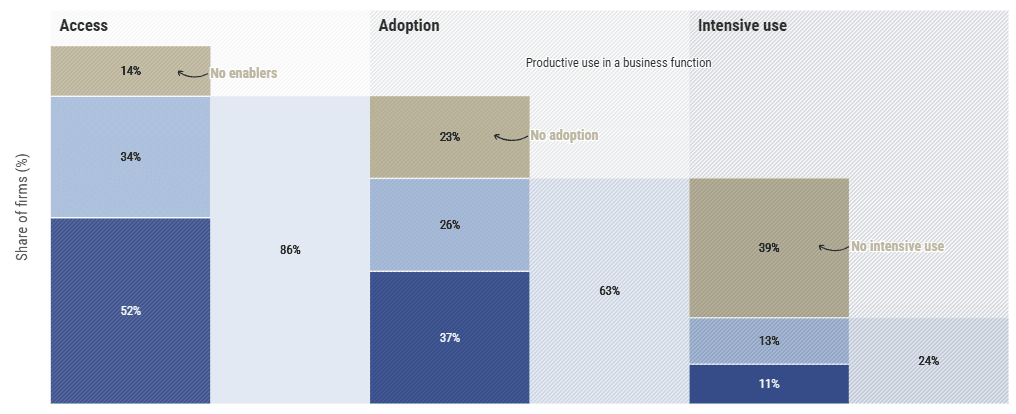Africans Must Take Advantage of the Global Digital Space
How much do African firms use digital technology, for what purposes, and how can they be encouraged to use it more? While advances have been made in digitalizing Africa, with mobile payments a success story, firms still face challenges like higher costs of technology. Much more can be done to enable and empower them to reap its full potential, IFC research shows. A new book, Digital Opportunities in African Businesses, outlines the steps to be taken—from investing in digital infrastructure to funding tech startups offering user-friendly, affordable digital solutions. More than 600,000 formally registered firms and 40 million microbusinesses—about 20 percent of businesses in Africa—are potentially ready to benefit from digital upgrades.
Digitalization offers an array of investment opportunities both for African firms and those who conduct business with them. Making fuller use of digitalization across all economic activities can help businesses become more productive, profitable, and integrated in global, regional, and local value chains.
There is great scope for businesses to expand the functions for which they use tech. Fewer than one in three firms that have adopted digital technologies intensively use them for business purposes, a phenomenon defined as incomplete digitalization. This under-utilization of the technology is even more pronounced among small and micro-sized firms, who comprise the vast majority of African enterprises.
Making greater use of digital technologies would likely help companies’ bottom line: the research shows a strong positive association between more advanced digitalization and intensive use with higher levels of firm productivity, even after controlling for firm size, sector, and location, among other factors. Using more advanced technology can explain firm-level differences in productivity by as much as 30 percent.
How Digitalized Are Firms? Why Does It Matter?

Source: World Bank’s Firm-level Adoption of Technology survey data. • Note: Digital enablers refer to mobile phone, computer, or internet. Digital technologies in business functions refer to standard software (basic) or specialized and integrated systems (advanced). Second and third columns refer to the average across general business functions.










